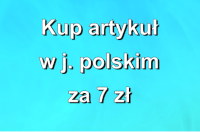Oktawia Kuna, Halina Woś, Bożena Kordys-Darmolińska, Agnieszka Ciukszo, Jacek Durmała, Zbigniew Śliwiński, Marcin Mikos, Jan W.Raczkowski, Mateusz Curyło
Oktawia Kuna, Halina Woś, Bożena Kordys-Darmolińska, Agnieszka Ciukszo, Jacek Durmała, Zbigniew Śliwiński, Marcin Mikos, Jan W.Raczkowski, Mateusz Curyło – Following the recommendations concerning pulmonary rehabilitation by parents of children with cystic fibrosis. Fizjoterapia Polska 2021; 21(1); 178-186
DOI: https://doi.org/10.56984/8ZG079497
Abstract
Introduction. When performed according to the most recent standards, rehabilitation and nebulization enable the prevention of progression of cystic fibrosis.
Aim. The aim of the study was to assess the parents’ knowledge concerning the disease, education of pro-health attitudes, taking care of pulmonary rehabilitation equipment, and following the recommendations on how to perform inhalations correctly.
Materials and methods. Seventy-four parents with at least one child affected by cystic fibrosis participated in a survey, where we applied our own questionnaire.
Results. A majority of the parents claim to possess knowledge about the disease and to be familiar with the specialist terminology; however, a control question does not confirm that. Only 50% of the respondents take advantage of a positive influence of physical effort on the respiratory function, whereas 50% of the children assume incorrect positions during nebulization, and merely half of the parents maintain nebulization equipment in the right way.
Conclusions. Parents still need further education concerning their children’s condition, the principles of their rehabilitation, hygiene, the ways of properly maintaining the equipment, as well as dosing the suitable amount of physical activity on a daily basis.
Key words:
cystic fibrosis, rehabilitation, nebulization, physical activity, education


